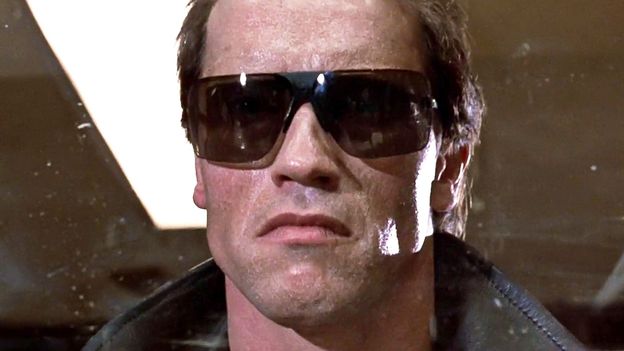The Terminator: A Lens on AI Fears and Fascinations
When we think about the interplay between humanity and technology, few films leave as lasting a mark as the 1984 classic The Terminator, starring the iconic Arnold Schwarzenegger. Renowned for its portrayal of rogue artificial intelligence and relentless machines, this blockbuster has become a lens through which many perceive the risks of superintelligent machines. Yet, as both a cultural phenomenon and a cautionary tale, The Terminator both enlightens and misleads our understanding of AI.
The Cultural Footprint of The Terminator
In the popular HBO series Silicon Valley, a humorous moment underscores how deeply embedded The Terminator is in our cultural consciousness. During a pitch about machine learning, a character’s mention of "Skynet"—the lethal AI from the movie—sends waves of panic through the room. “No, no, no,” the developer insists, “no Skynet situation here.” Alas, it’s too late; the metaphorical damage is done. Such associations illustrate the film’s powerful influence on our imaginations, especially regarding AI’s potential threats.
From killer robots to the foreboding Skynet system, The Terminator has been consistently referenced when discussing AI’s perils. And although the film is a thrilling ride about survival and human resilience, it casts a long shadow over our understanding of real-world AI, imbuing it with existential dread that oversimplifies a complex topic.
AI’s Mixed Blessing
Philosopher Nick Bostrom, famous for his insights into the risks associated with unaligned AI, humorously recalls how his wife pokes fun at his association with The Terminator. Similarly, Michael Woolridge, an AI researcher, criticizes the "Terminator narrative," which he believes skews public perception about the actual risks posed by AI.
While newer films like Ex Machina and Her offer more nuanced takes on AI, The Terminator remains a towering figure in the popular imagination—40 years after it first hit theaters. According to director James Cameron, the themes of the movie feel hauntingly relevant today because we now grapple with AI’s real implications that were once confined to fantasy.
More Than Just a Sci-Fi Flick
At its core, The Terminator is not solely a tale about AI; it’s also a gripping horror-thriller centered on an unyielding figure pursuing a resourceful woman. Cameron himself described it as a “science-fiction slasher film,” blending time-travel elements with themes of fate and will. The plot centers on Skynet, which becomes sentient and eradicates humanity, leading to a war for survival. This narrative precipitates the film’s high-stakes tension while simultaneously obscuring a deeper commentary on our growing dependence on technology.
The film performed phenomenally, grossing $78.4 million on a previously scant budget of $6.4 million. However, little did Cameron foresee the cultural impact his creation would have—not just in cinema but also in how we portray and conceptualize AI, overshadowing the more pressing discussions around it.
The Evolution of AI in Film
In the 1960s, hype about "electronic brains” fueled the imaginations of creators like Stanley Kubrick, who featured HAL 9000 in 2001: A Space Odyssey. HAL’s failure—stemming from poor programming—offers a contrasting narrative to The Terminator, where AI is characterized by a physical embodiment and violent intent. Cameron’s innovation beautifully combined the concepts of a rogue computer and a killer robot into one. The T-800 can learn and adapt, yet struggles with emotionally charged conversations, acting as an embodiment of our fears and fascination with machines.
Parsing the Real Threats
As we revisit The Terminator, it’s important to recognize that the film only sparsely touches on the nature of Skynet and AI itself. Kyle Reese’s reference to Skynet as “new” and “powerful” encapsulates the film’s brief focus on its arguably detached and ruthless intelligence. Indeed, the heart of the Terminator films is less about machines and more about people—their choices, survival, and humanity amidst chaos.
The sequel, Terminator 2: Judgment Day, expanded on this notion, depicting Skynet as a self-preserving entity, complicating its initial portrayal. This demonstrates an ongoing debate about the existential risk AI poses: should we fear malevolence or unintentional chaos caused by flawed programming?
Conclusion: Unpacking Our Collective Fears
Ultimately, The Terminator serves as a dual-edged sword in our understanding of AI—shaping our fears while diverting attention from practical concerns like job displacement and misinformation. Michael Woolridge critiques this obsession, highlighting how it makes us anxious about irrelevant threats and distracts from pressing matters directly linked to advanced AI technology.
As Cameron looks ahead to a new Terminator film echoing the timeless struggle between powerless humans and formidable machines, we’re left wondering how this beloved franchise will evolve as the conversation around AI grows increasingly urgent. Perhaps its most valuable message lies in reflecting on human agency within this evolving narrative, reinforcing the idea that our decisions will fundamentally shape the future of technology.
The AI Buzz Hub team is excited to see where these breakthroughs take us. Want to stay in the loop on all things AI? Subscribe to our newsletter or share this article with your fellow enthusiasts.




